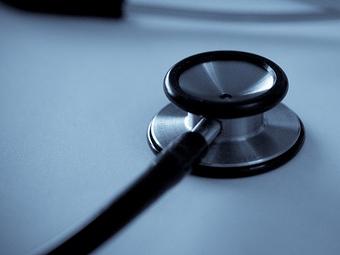
Section Branding
Header Content
Why Legionnaires' Disease Could Spike During The Pandemic
Primary Content
GPB's "All Things Considered" host Rickey Bevington interviews GPB health care reporter Ellen Eldridge about her recent reporting on Legionnaires' disease

Many of the buildings where we lived out our pre-coronavirus days have been largely empty and idle.
Now, some experts are warning that idle buildings may have become breeding grounds for another disease which, like coronavirus, causes severe lung illness, pneumonia and sometimes death.
GPB's "All Things Considered" host Rickey Bevington interviews GPB health care reporter Ellen Eldridge about her recent story How Legionnaires' Disease Resembles COVID-19 And How The Pandemic May Result In More Outbreaks
This conversation has been edited for clarity and conciseness
Rickey Bevington: So how common is Legionnaires' disease and how did Stephanie Osterhaut discover that she had it?
Ellen Eldridge: Well, the disease is considered rare. We did have an outbreak last summer at the Atlanta Sheraton Hotel that was traced to the hotel's cooling tower. One person died and the health department estimates that more than 60 people had Legionnaires. Over the last three years, Georgia has averaged about 179 cases per year. Stephanie Osterhaut contracted Legionnaires' when she was on vacation out of state in 2017. She probably wouldn't have even known that she had Legionnaires' if the local health department hadn't called her. And that's one of the reasons the toxicologist expert David Krause says Legionnaires' is under-diagnosed. It's why he also says building managers need to test specifically for the Legionella bacteria.
Bevington: And what is the treatment if they find it?
Eldridge: The bacteria can flourish when the chlorine or whatever disinfectant being used in the water system gets used up and the Legionella grows. This can happen even when the AC units are still running. During the shutdown, many of the maintenance workers were furloughed. The Centers for Disease Control and Prevention says flushing the lines is acceptable. But experts disagree. They say that testing should be done to determine if that bacteria has indeed been growing.
Bevington: So, Ellen, it seems like there's kind of a balance here. Which is worse? To have places shut down and possibly developing Legionella or risk transmission of coronavirus?
Eldridge: Obviously, the shutdown was necessary and it did help reduce transmission of coronavirus. But (Gov. Brian Kemp) wants the state open for business and people need to work to survive. So what David Krause says is that as we prepare buildings to reopen, we have to test specifically for that Legionella bacteria. That can be expensive. I looked it up and on Amazon. You can get a single test kit for about $110. But, of course, for a hotel or a hospital, you need many, many samples. And that could cost you. To validate it, it could cost you up to $20,000.
Bevington: Is Legionnaires' mostly a risk for large commercial spaces like we've been talking about - schools, offices and hotels? Or do people need to be worried about this in their homes?
Eldridge: No. Home air conditioning units don't use water to cool the air, so they're not at risk for Legionella bacteria.
Bevington: What are the long-term effects of Legionnaires'? How is Steffanie Osterhaut doing now?
Eldrdige: She did clear the bacteria three years ago. She didn't have Legionnaires' disease anymore but her symptoms continued. No doctor could properly diagnose why she kept feeling extreme fatigue to the point where she stayed in bed for four to five days at a time. She wanted to do something -- anything to control the situation and be proactive. So she went out and bought her daughter makeup and taught her how to apply it.
Sound bite from Stephanie Osterhaut: "I took my daughter and I bought her makeup. I taught her how to shave her legs. I taught her how to put on her makeup. And I went in my closet and I cried. Because I thought that if if this killed me. At least she would have those memories.
Eldridge: That's hard for many of us, especially parents, to think about what we would do if we were suddenly so sick that we might die. And that's a reality with COVID-19, too.
Bevington: And how is Stephanie doing now balancing this illness and the pandemic?
Eldridge: In her household, they started taking precautions early, as soon as they started seeing cases of COVID-19 way back in January. Her husband works outside the home managing a chain of restaurants. So when he comes back, he takes his shoes off and Lysols them by the door and changes clothes. That's something the kids do, too. So at this point, they've taken all the care they can to avoid getting sick.


